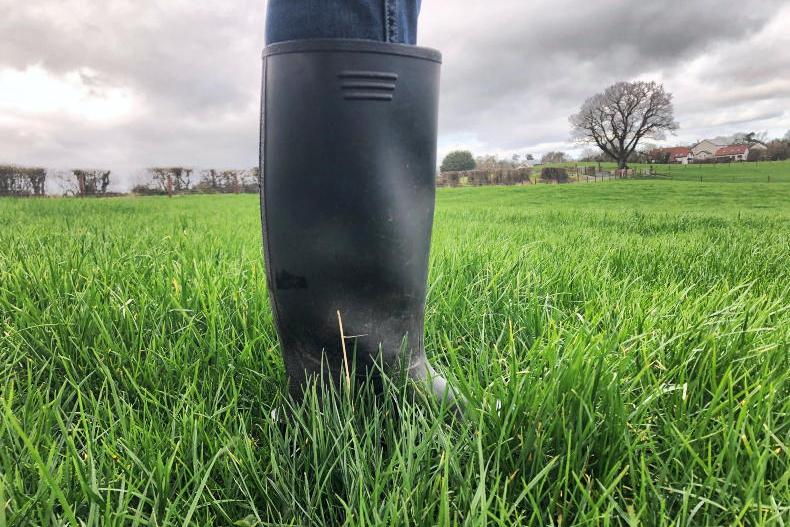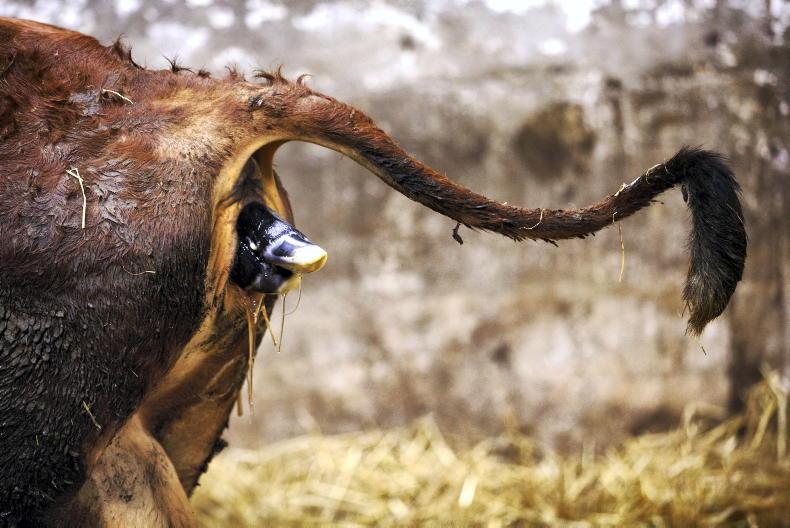All parts of the food chain need to play a role in reducing emissions and that includes the consumer, according to the UN’s livestock policy officer.
“How much of the meat and dairy products originating from Irish cattle are wasted?”
Tim Robinson, livestock policy officer with the Food and Agriculture Organization of the United Nations, posed the question to the Irish Farmers Journal after his appearance at Alltech’s recent environmental forum, before noting that these emissions from food that is wasted “have no actual productive value at all.”
That’s food for thought – pardon the pun. Emissions from approximately one-third of the food produced in the world are a total waste, and impact on the environment because they have not fed anyone at all.
Robinson was strong in his view that the consumer needs to take more responsibility for emissions from food production.
He also outlined a need for modelling scenarios where animal numbers are reduced and the effect this would have on emissions.
Carbon leakage
Carbon leakage is the term used to describe when efficient countries decrease their production of, for example, dairy products, to reduce emissions, but other countries begin to produce dairy to address the deficit and as a result, produce the emissions. Carbon leakage is a hot topic for Ireland’s efficient meat and dairy producers. Robinson does not believe this argument holds strong, returning again to the consumer.
“What should really happen, of course, is that consumers should be held accountable for emissions wherever they originate,” he says.
“That’s the proper lifecycle approach. Consumers in the exporting countries should be taking on the burden of emissions for the meat and dairy products they consume.”
Reducing animal numbers
We hear a lot lately about reducing animal numbers to reduce emissions.
Robinson acknowledged: “I think it may be difficult to meet shorter term targets [on emissions reduction] without reducing the numbers of ruminants, but all this needs to be modelled.”
“Much of this will depend on how methane emissions will be considered in emission accounting. The jury is still out on that.”
Balance needed
Asked where the balance lies between feeding the growing world population and reducing agricultural production to protect the environment, while still maintaining carbon in our soils and hedgerows, Robinson says: “I don’t know where the balance is. I would challenge anyone to answer that question from a neutral standpoint.”
He notes that there are a lot of extreme views, but “what’s clear is we need to feed the world safely and sustainably and at the same time, preserve and enhance what is an already heavily damaged natural environment.”
The UN officer lists the recycling of biomass and nutrients as solutions to some of the pressure on our natural resources, but adds that there are barriers in the uptake of new technologies and practices.
Seaweed additives, clover and multispecies swards are among some of the measures that can be used to tackle methane emissions.
“If Irish farmers have technologies and aren’t using them, you have to ask why and identify the reasons,” he says.
“It’s so important that we have the right policy in place that promotes the uptake of technology, that makes it worthwhile, that makes it the obvious thing to do.”
“We need the right incentives to get all these things in place and I think proper accurate accounting and tracking of carbon and other sources of emissions throughout the entire lifecycle of the production of these foods is going to be important, because it will give everything a value.”
Carbon accounting
At present, carbon that is sequestered and stored on farms in the soil, hedgerows and trees is not taken into account.
Robinson insists: “We should be accounting for carbon sequestration on farms.”
“We need a proper system that functions so people can focus on reducing direct emissions, focus on avoiding indirect emissions and use the accounting systems to offset the difference, whether that’s producing renewable energy on-farm with solar panels on dairy sheds for example, wind turbines or creating biogas from manure.”
Pathways to net zero
At the Alltech conference, Robinson spoke about a new initiative for finding pathways to net zero in the dairy industry by 2050.
Dairy processors from all over the world are taking part and Ireland is expected to be early adopters of new technologies to help reduce emissions from the dairy sector in the initiative.
On emissions reduction, Robinson says: “Any improvement is good, as long as we keep heading in the right direction.”









SHARING OPTIONS